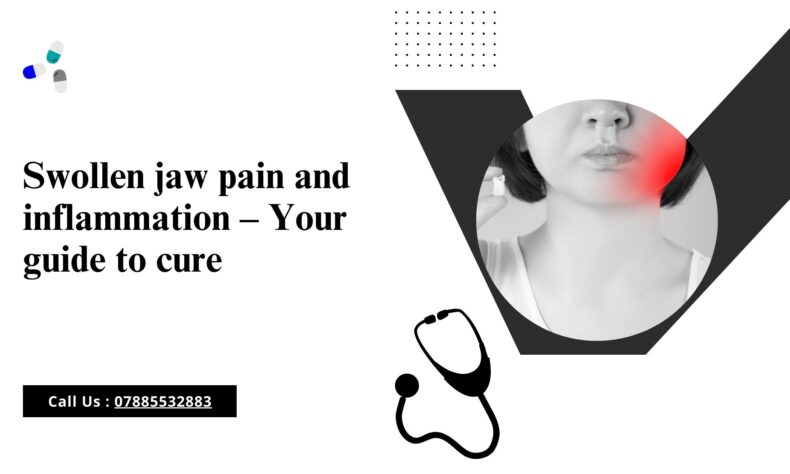
Jaw pain – what is it?
Jaw pain is a common dental issue. It affects hundreds and thousands of people in the UK. The problem ranges from mild stiffness, an ache or severe pain in the jawbone to the places surrounding the ears. In other words pain in the jaws can be mild as well as severe. It can even disrupt your normal life. There can be lots of reasons behind the problem ranging from grinding of the teeth, a toothache to gum disease. It is relevant mentioning that pain in the jaw can also be a symptom of a severe issue like a broken or dislocated jaw as well as a life threatening heart attack.
More about jaw pain
Temporomandibular joints are located in front of the ears on both sides of the face. This joint connects your lower jaw to the skull. Thanks to these temporomandibular joints we can move the lower jaw side by side as well as up and down.
- The problem of jaw pain can make your temporomandibular joints go stiff. In other words you cannot move your lower jaw either side by side or up and down because the pain is so severe.
- Some patients even suffer from swollen jaw pain in one side tooth.
- You may even experience a throbbing ache or pain in your jaws.
- After surviving an injury you may experience intense pain in the jaw.
- There can even be pain when you try to open your mouth. This problem is called trismus.
- In certain cases patients complain of a pain that originates from the chest or shoulders and spreads across the jaw. This could be the most common symptom of heart attack. Remember heart attacks are medical emergencies. In this type of symptoms it is best to call emergency helpline 111 immediately to ensure the best possible care and treatment.
Pain only in one side of the jaw
In certain cases related to jaw pain patients experience pain only on one side of the jaw. This could be because of a temporomandibular joint disorder, which in short is referred to as TMJ.
When should I consider jaw pain seriously?
There are certain jaw pains that go away automatically. It may take a few days but at the end the pain and inconvenience get cleared away. But if your pain the jaw lingers for more than a week then you should better consult a doctor. There are cases involving pain the jaw that require emergency medical treatment. You should not ignore pain in your jaws under the following conditions –
- Do you suspect that your jaw might be fractured or out of its normal position?
- There is pain that originates from the chest and spreads up to the jaw
In both cases you must seek medical emergency by dialling 111.
The problem of jaw pain and the role of stress
Research reveals stress is a major factor behind TMD (temporomandibular disorders) or jaw pain. In order to get relief in these cases you can try out the following –
Moist heat or ice pack provide relief
Ice is a good agent to numb pains and reduce swellings. On the other hand heat boosts supply to blood to the area. This relaxes the muscles nearby as well as minimise stiffness in the joint. Preparing an ice pack is easier than you think. Take a plastic bag and place ice cubes inside it. Wrap it up with a think cloth so that there is no cold burn on your fingers or skin. As an alternate option, a bag of frozen peas also works great. Apply the cold pack to the affected area or the jaw for about 8 to 10 minutes. Then remove it for another 8 to 10 minutes from your face. Keep alternating this way for at least four to five times before you can feel any relief.
In order to apply moist heat to the area, fill up a bottle with hot water. Wrap the bottle in a towel. Make sure the bottle is not too hot to burn your skin. These days, heat and ice packs are readily available in pharmacies. You can also order online. While using heat or ice pack you must cover the packs with a piece of cloth or towel avoid burns.
Relief from jaw pain using nutrients and supplements
Before you take any new supplement to get relief from jaw pain you must consult your doctor.
- Omega 3 fatty acids – These are basically essential nutrients that possess rich anti inflammatory properties. Food items that are good sources of Omega 3 fatty acids include walnut, chia seeds, soybean, salmon, cod liver oil, flax and oysters.
- Magnesium – It is wonderful agent to release muscle tension. Food items that are rich source of magnesium include avocados, pumpkin seeds, dark chocolate, almonds, banana, black bean, chard, spinach and kefir, etc.
- Turmeric – Turmeric has great anti inflammation properties and has been in use to fight inflammation across the ages. it is a popular Indian spice bright yellow in colour. You can add it to almost any dish that you whip up either for lunch or dinner.
Stress and depression management to fight jaw pain
Mental depression and stress are a major contributing factor to the problem of jaw pain. We tend to clench the jaws and grit the teeth when we are subjected to stressful situations. Relaxation techniques prove helpful to stay calm and reduce stress. The techniques include meditation, yoga, deep breathing and physical exercises. These activities when carried out daily lower the heart rate and blood pressure. Moreover these activities relax muscles and calm the overall nervous system. Having sufficient sleep is also important to control stress level. All these activities are helpful getting relief from jaw pain.
Activities that you must avoid while suffering from jaw pain
Certain activities are known to make the condition of jaw pain worse. These include chewing gums, clenching of the jaws, eating hard chewy foods and candies and slouching. Even consuming any drink that contains caffeine can make your condition worse.
Diet of soft foods to cure pain in the jaw
Experienced dentists working at the Emergency Dentist London Pro suggest patients to be on a diet of soft foods to cure intense jaw pain. Foods in the diet mainly include various types of soups, pasta, yogurt, soft bread, pudding, applesauce and such other items. One should be on this soft diet for at least 5 to 7 days to feel the effect.





